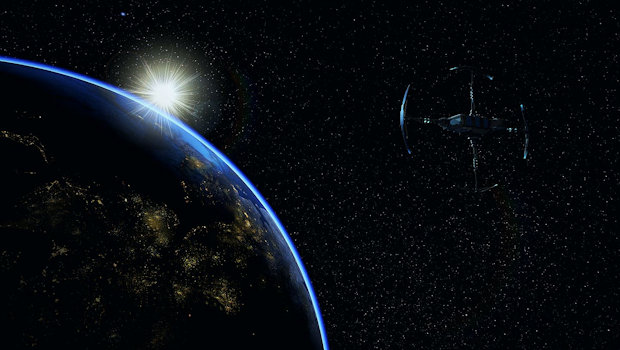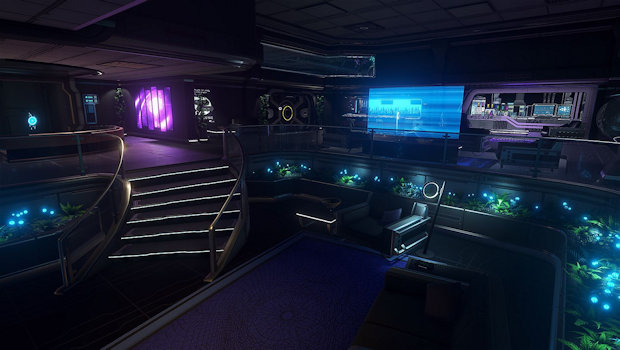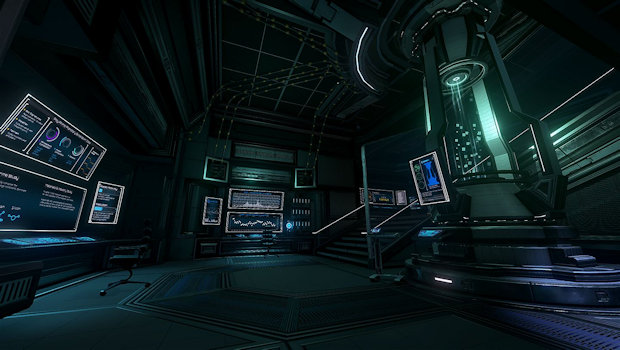I’ve never liked the term walking simulator but, it is the term coined for the genre that a slew of games over the past few years have come to inhabit. Games like Dear Esther, Gone Home, and Firewatch, all populate this genre that has been met with both critical acclaim and derision. Regardless of where you stand on the argument of if walking simulators are games or not, it very clearly seems like they are here to stay as new releases in the genre continue to make their way out to players.
The latest of these types of games is The Station, developed by The Station Game. Set on a space station, the player is tasked with unraveling the mystery of what has transpired. If this sounds pretty similar to Fullbright’s follow-up to Gone Home, Tacoma, that is because it very much is. There are however, enough differences to make the two stand alone.
Sadly, The Station’s gameplay is less polished in nearly every way to Tacoma, offering a more clunky experience through and through. Playing on the Xbox One, I obviously was using a controller and The Station seems designed and optimized around playing with a mouse and keyboard. Hit boxes on items for selection seemed very, very narrow and I often found it difficult to accurately place my cursor on things I wanted to select. It is possible that the game plays better on PC. What may not play better on the PC though is the general speed of the game. Even when “running”, the game feels slow. Which, considering the length of the game (about 60-90 minutes), maybe that is on purpose.
Visually though, The Station looks fine and at certain points it actually looks quite excellent. It doesn’t necessarily have the unique look and feel that Tacoma does but the environment in The Station is believable and as with all games in this genre, getting that part right is step one in creating an engrossing experience.
The other step of course is telling a compelling story, and here, The Station mostly succeeds. As I explored the station and uncovered its mysteries, a slight creeping sense of dread overtook me. We were using the station to spy on an violent alien civilization before deciding to make contact. The cloaking device failed and the station was left exposed. Why did this happen? What was going on with the crew? For that matter, where is the crew? These questions and more started to circle my head and while the performances in the audio logs was at best serviceable, I was pulled in fully by the mystery.
One of the things The Station does different from many entries in the genre is that it has some very rudimentary puzzle solving that needs to be completed before advancing in certain parts. This more than anything made the world feel alive. Sure, the simple puzzles and fetch quests, which sometimes involved me walking through the ship carrying (magically hovering) one item to a different location, aren’t very taxing but it forced just enough interactivity to make me feel like I was there on the station. I wasn’t just a hovering ghost piecing together a story in a three dimensional diorama. I was there on the station, a tangible being existing in the same space as the narrative. That to me is the biggest key to having a successful game in this genre. Without it, it’s just piecemeal storytelling.
Worse than piecemeal storytelling to a ghost though is an abrupt ending that rips you out of an experience that was just beginning to get its hooks in me. I kid, that actually isn’t worse, but it is super deflating to just begin investing yourself fully in the mystery only to have an ending thrust on you and then credits. The ending though, I did like quite a bit leaving me going, damn that was pretty cool.
The reality is that The Station isn’t going to change your mind on the walking sim genre. It’s not the brightest star in the genre and suffers from some technical issues here and there. And even with its added interactivity, it is still very much a mobile narrative delivery device. That isn’t a slight against it, The Station’s job is to that of telling a story and it does it well enough that I was engaged. But it’s short time frame will certainly cause some people to pause and the clear design around PC control inputs may make it less worthwhile to look at on consoles. But as a quick science fiction escape, it’s better than some recent science fiction film releases.
This review was written with material provided by the publisher on the Xbox One. For more on our review process, please read here.


